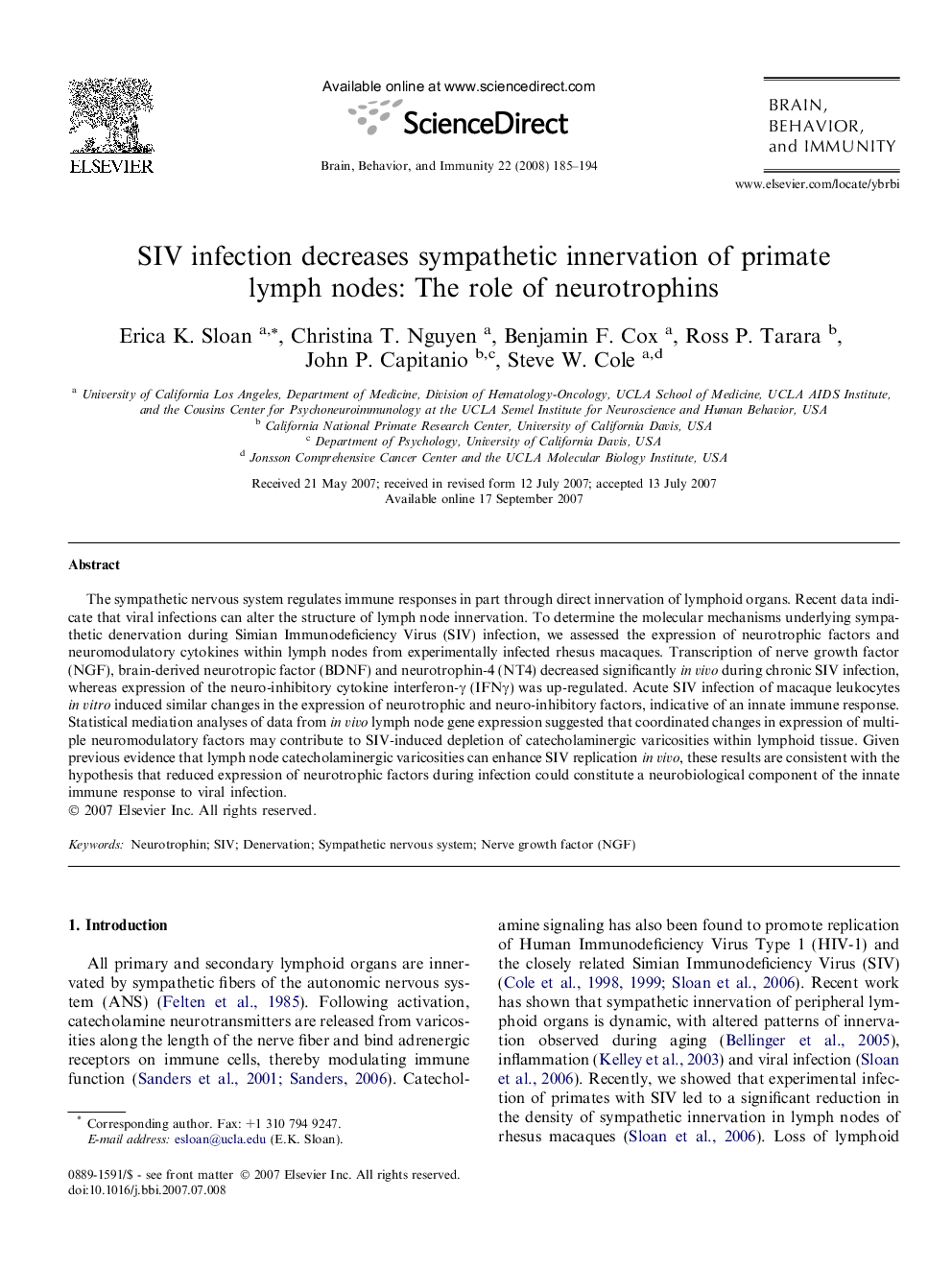| Article ID | Journal | Published Year | Pages | File Type |
|---|---|---|---|---|
| 923215 | Brain, Behavior, and Immunity | 2008 | 10 Pages |
The sympathetic nervous system regulates immune responses in part through direct innervation of lymphoid organs. Recent data indicate that viral infections can alter the structure of lymph node innervation. To determine the molecular mechanisms underlying sympathetic denervation during Simian Immunodeficiency Virus (SIV) infection, we assessed the expression of neurotrophic factors and neuromodulatory cytokines within lymph nodes from experimentally infected rhesus macaques. Transcription of nerve growth factor (NGF), brain-derived neurotropic factor (BDNF) and neurotrophin-4 (NT4) decreased significantly in vivo during chronic SIV infection, whereas expression of the neuro-inhibitory cytokine interferon-γ (IFNγ) was up-regulated. Acute SIV infection of macaque leukocytes in vitro induced similar changes in the expression of neurotrophic and neuro-inhibitory factors, indicative of an innate immune response. Statistical mediation analyses of data from in vivo lymph node gene expression suggested that coordinated changes in expression of multiple neuromodulatory factors may contribute to SIV-induced depletion of catecholaminergic varicosities within lymphoid tissue. Given previous evidence that lymph node catecholaminergic varicosities can enhance SIV replication in vivo, these results are consistent with the hypothesis that reduced expression of neurotrophic factors during infection could constitute a neurobiological component of the innate immune response to viral infection.
